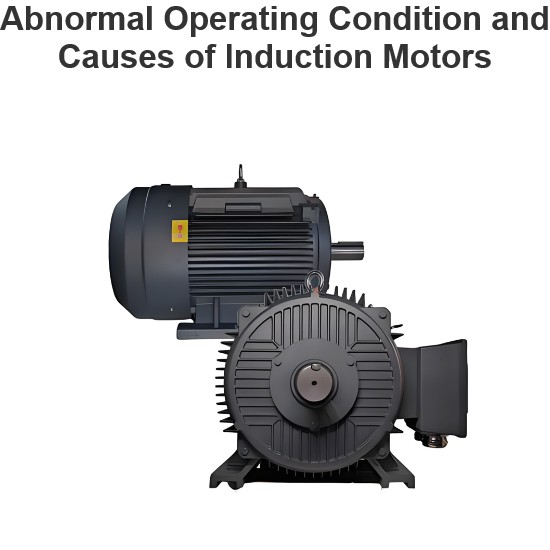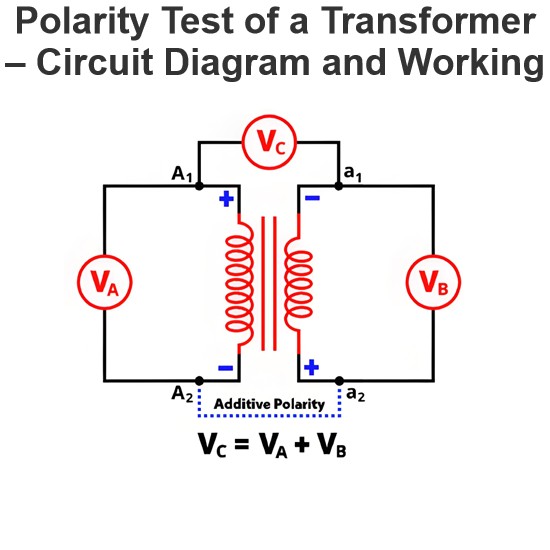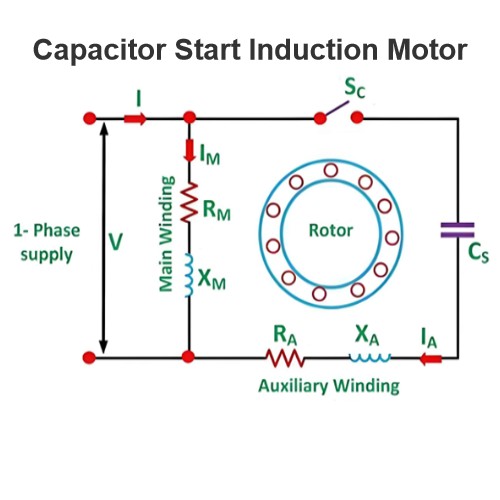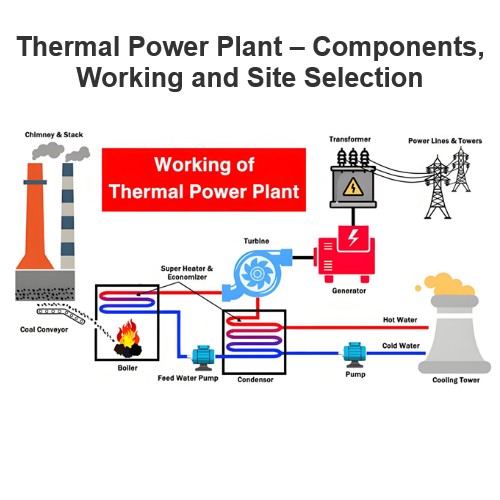What is Speed Control of DC Motor?
What is Speed Control of DC Motor?
Dc motor speed control
The process of adjusting motor speed to meet specific operating requirements.
The speed (N) of a DC motor is equal to:
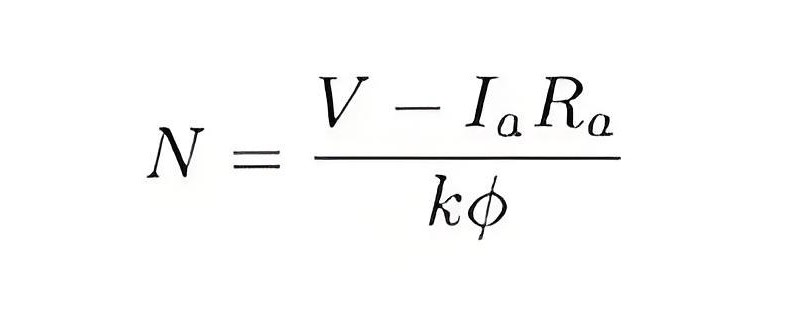
Therefore, the speed of the 3 types of DC motors (shunt motors, series motors, and compound motors) can be controlled by changing the quantity on the right side of the above equation.
Dc series motor speed regulation
Armature control method
Armature resistance control method
This common method involves placing the control resistance directly in series with the power supply of the motor, as shown in the figure.
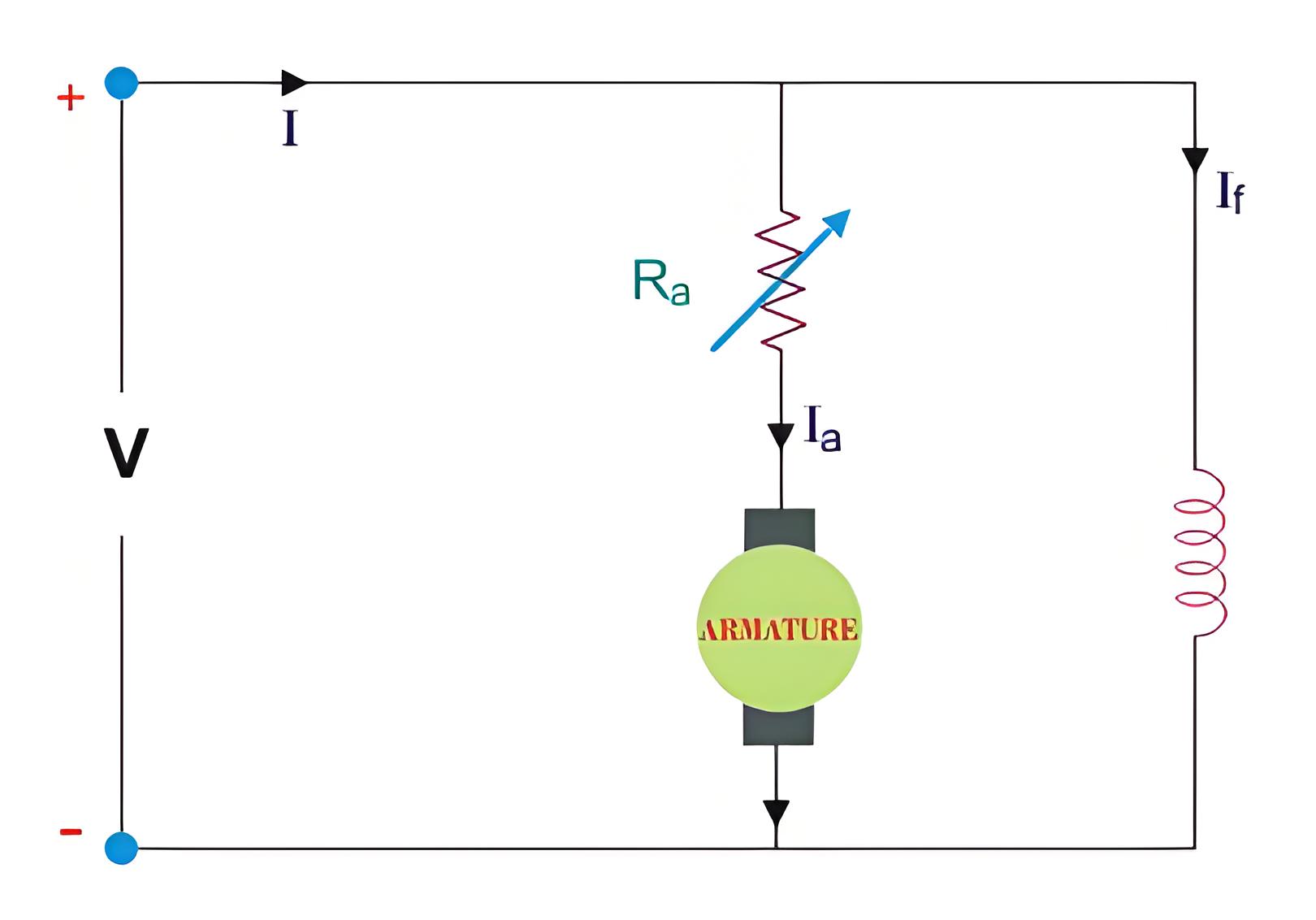 Shunt armature control method
Shunt armature control method
This speed control method involves a combination of diverting a rheostat to an armature and a rheostat in series with an armature. The voltage applied to the armature is changed by changing the series rheostat R 1. The excitation current can be changed by changing the armature shunt resistance R 2. Due to the large power loss in the speed control resistor, this method of speed control is not economical. Here, speed control is obtained over a wide range, but below normal speed.
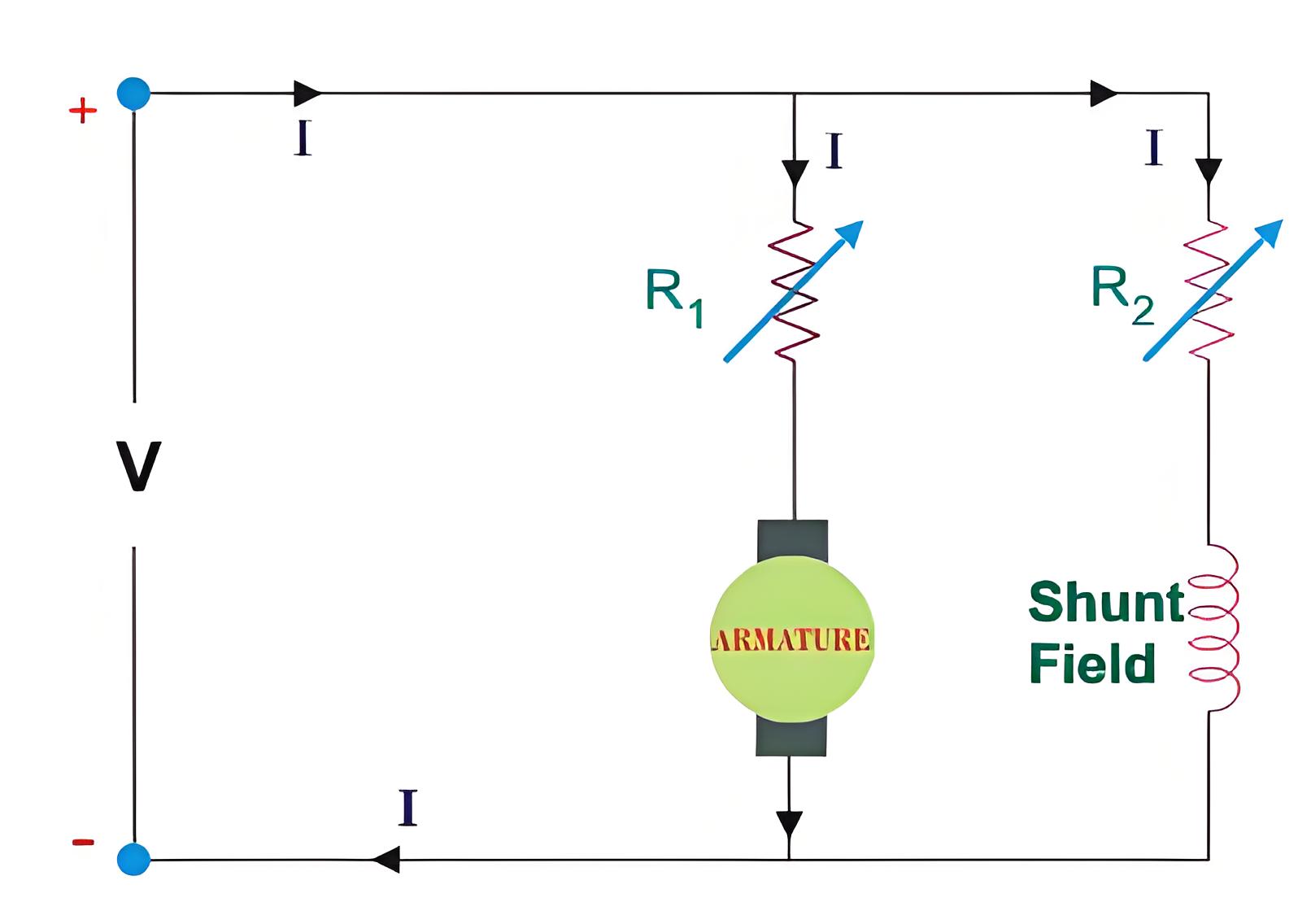
Armature end voltage control
Speed control of DC series motors can be achieved by using a separate variable voltage power supply, although this method is expensive and therefore rarely used.
Field control method
Magnetic field shunt method
This method uses a shunt. Here, the magnetic flux can be reduced by diverting a portion of the motor current around the series magnetic field. The smaller the shunt resistance, the smaller the magnetic field current, the smaller the magnetic flux, and therefore the faster the speed. This method makes the speed higher than normal, and this method is used for electric drives, where the speed rises sharply once the load is reduced.
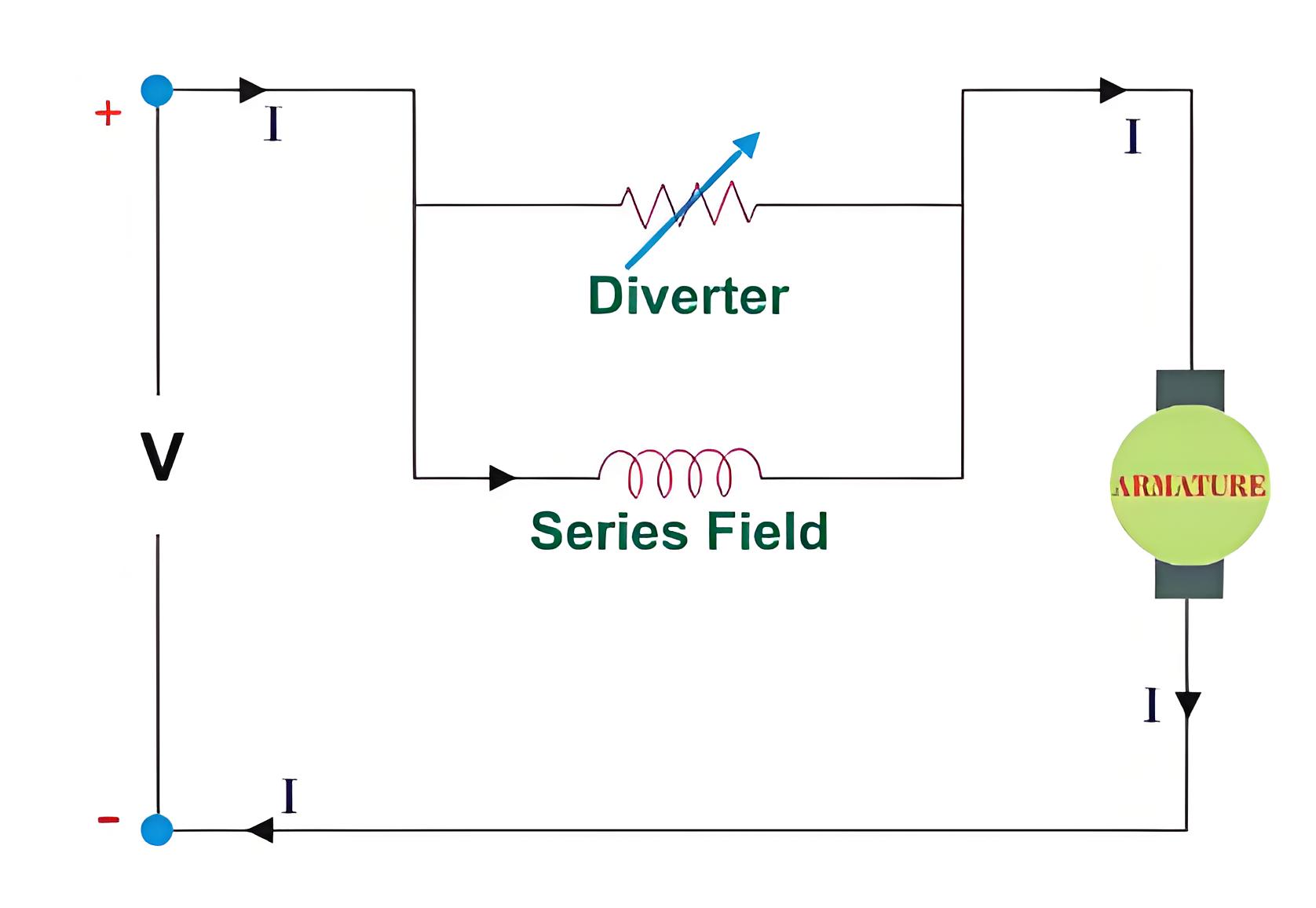
Tap field control
This is another way to increase speed by reducing magnetic flux, which is achieved by reducing the number of turns of the exciting winding through which the current flows. In this method, some of the taps from the field winding are brought outside. This method is used for electric traction.
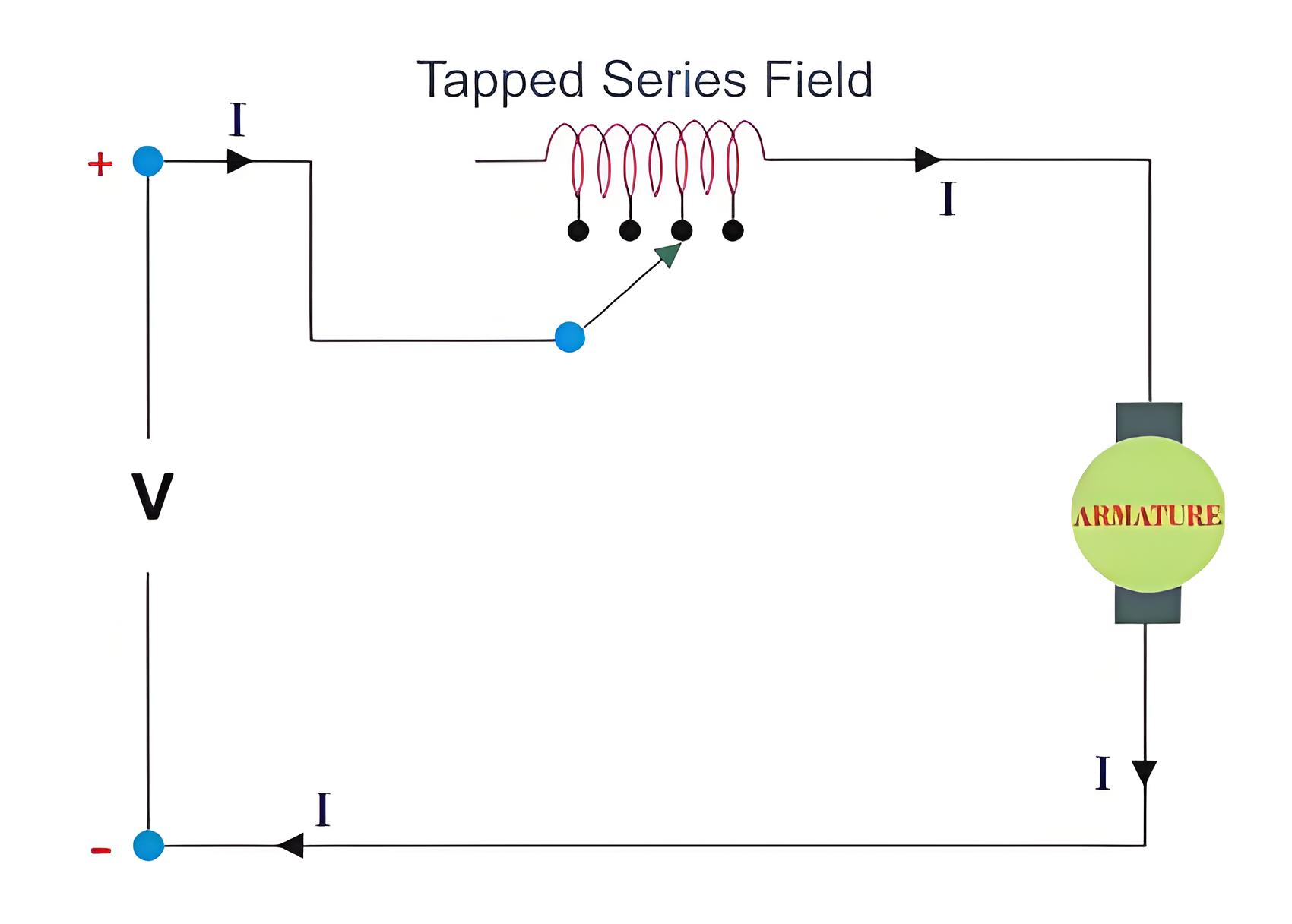
The Electricity Encyclopedia is dedicated to accelerating the dissemination and application of electricity knowledge and adding impetus to the development and innovation of the electricity industry.

